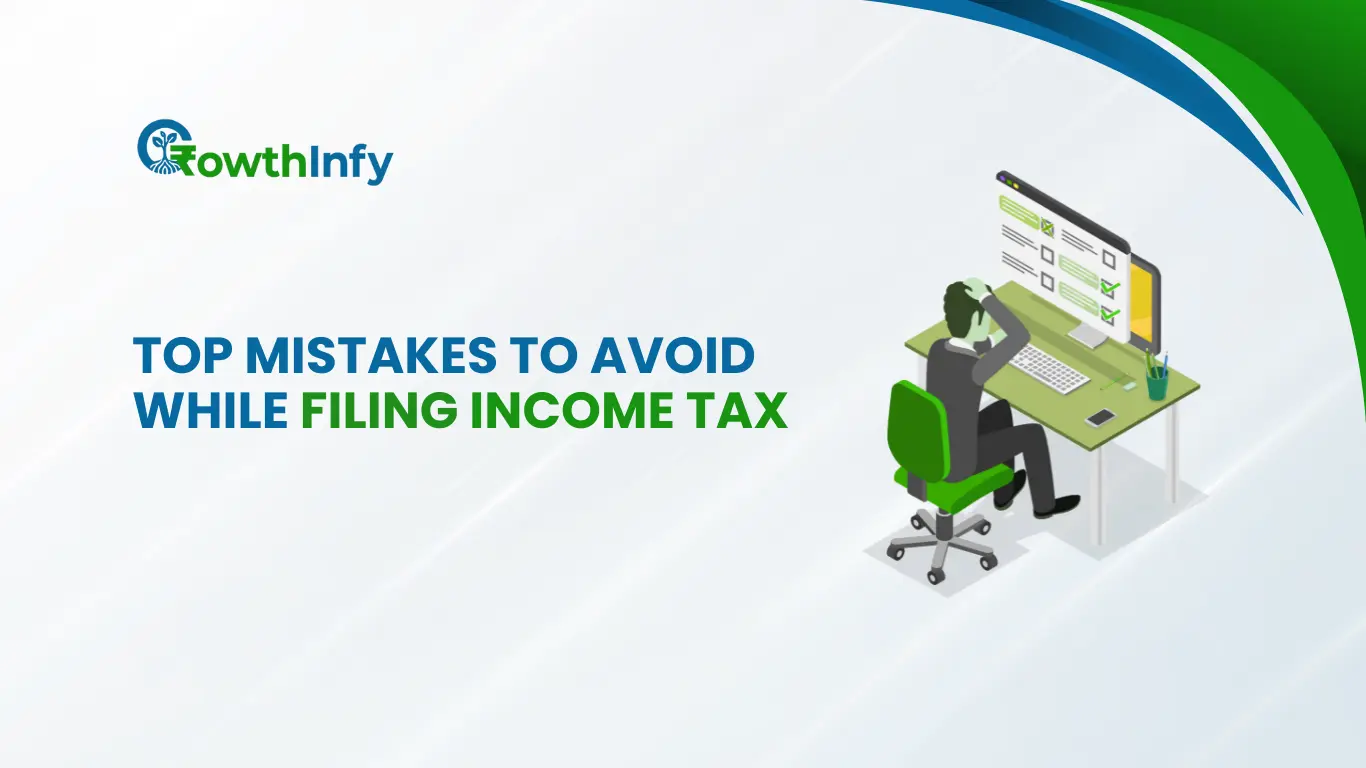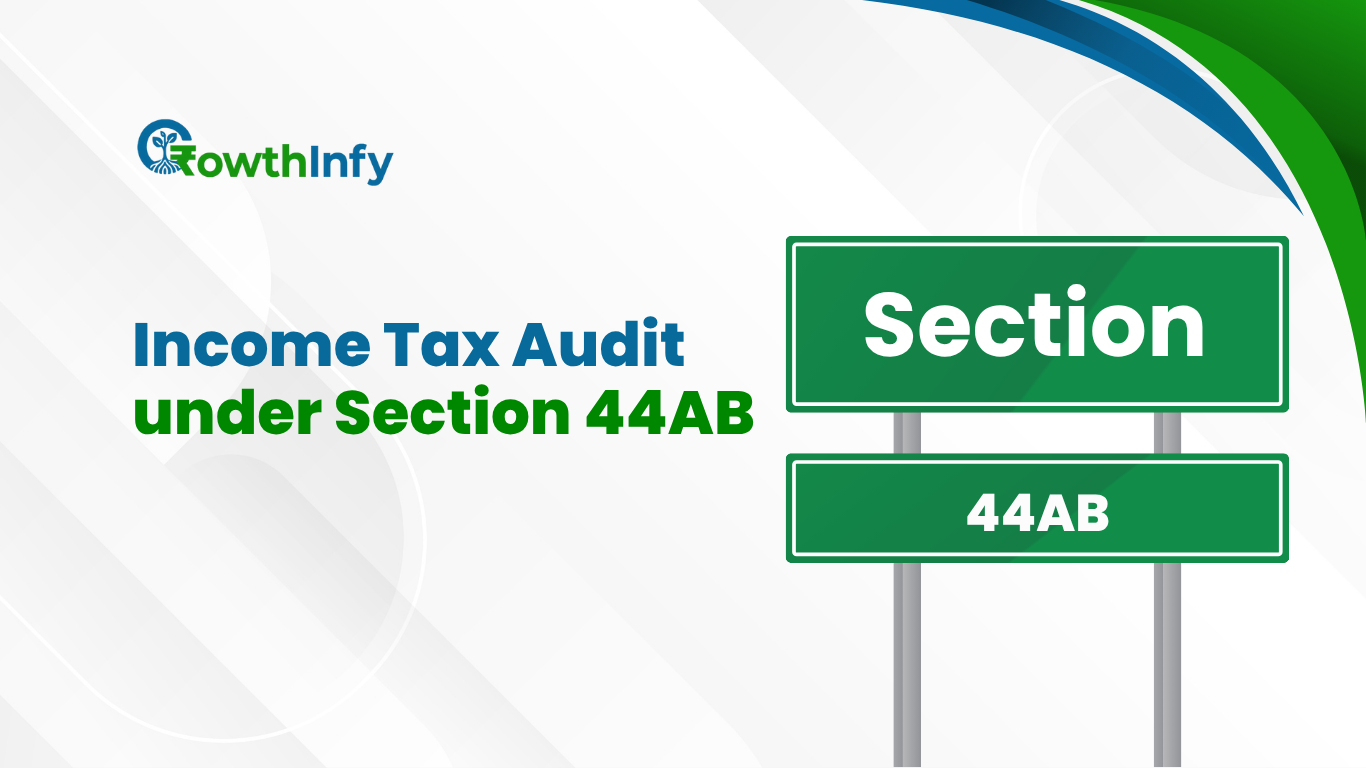Common Mistakes to Avoid While Filing Income Tax Returns in India
Filing an Income Tax Return (ITR) is an important yearly task for every Indian taxpayer. In this digital age, most streamlined operations allow a taxpayer to file their taxes, but some common mistakes delay the process, cause penalties, or create legal problems. Here is a comprehensive list that covers the most common mistakes and how to avoid them, based on expert advice.
1.Choosing the Wrong ITR Form
Selecting the appropriate ITR form is essential. The Income Tax Department has different forms (from ITR-1 to ITR-7), depending on the income classes and taxpayers with whom they are associated. If you use an incorrect form, your return may be treated as defective and rejected, creating unnecessary problems from your end and delays in refunds. For instance, for persons salaried under ₹50 lakh, ITR-1 is to be used; if you have capital gains or own more than one house, you must file ITR-2 or above forms.
Tip: Always check the eligibility criteria for each ITR form before filing.
2.Missing or Incorrect Personal Information
Processing may be delayed, or refund may not be generated if basic details like PAN, Aadhaar, name, date of birth, bank account number, or contact information are erroneous. Check so that all personal information corresponds to that in your official documents and is entered correctly.
Tip: Double-check every detail before submitting your return.
3.Not Reporting All Sources of Income
Most taxpayers report only the main salary income and tend to overlook other sources such as:
- Interest on savings, FDs, or regular deposits
- Rent received
- Income from freelance work or side businesses
All income, regardless of how small, is to be reported. Leaving out any source is tantamount to concealment and can result in penalties or attention from the tax department.
Tip: Review your bank statements, Form 26AS, and AIS to ensure nothing is missed.
4. Not Reconciling with Form 26AS and AIS
Form 26AS and Annual Information Statement (AIS)summarize all tax deducted at source (TDS), advance tax paid, and high-value transactions. Not cross-verifying your ITR data with these forms can result in mismatches, notice and refund delays.
Tip: Always reconcile your return with Form 26AS and AIS before submission.
5.Not Meeting the Deadline for Filing
Late fees, interest on overdue taxes, and the loss of some benefits, such as the ability to carry forward capital losses, can all arise from missing the ITR deadline. In extreme circumstances, it might even lead to legal action.
Tip: To prevent last-minute rush and mistakes, set reminders and file your return well in advance of the due date.
6.Failure to e-verify the ITR
Until you e-verify your ITR, it is not complete. Unverified returns are deemed invalid, and you might need to start over. E-verification must be finished within 30 days of filing and can be done through net banking, Aadhaar OTP, or other authorized means.
Tip : As soon as you file, finish the e-verification step.
7.Not Disclosing Every Bank Account
All bank account information, both active and dormant (apart from those closed during the year), must be disclosed. Failure to do so is against IT regulations and may result in sanctions.
Tip : Before beginning the filing process, make a list of all your bank accounts.
8. Choosing the Wrong Assessment Year
Penalties or double taxation may arise from choosing the incorrect assessment year. For instance, income from FY 2024–2025 should be reported for AY 2025–2026.
Tip : Before filing your return, confirm the assessment year.
9.Ignoring IT Department Alerts
React right away if the Income Tax Department sends you a notice. Ignoring communications may result in fines, legal action, or both.
Tip: Keep an eye out for updates on the income tax portal and in your registered email.
10.Neglecting Exemptions and Deductions
Many taxpayers either make mistakes in their claims or fail to claim eligible deductions under sections such as 80C, 80D, and 80TTA. As a result, you might have to pay more taxes than you need to.
Tip: Take advantage of all the deductions you are entitled to and keep all supporting documentation close at hand.
Summary Table: Common ITR Filing Mistakes
Mistake | Consequence | How to Avoid |
Wrong ITR Form | Return rejection, delays | Check eligibility for each form |
Incorrect personal info | Refund delays, processing issues | Double-check all entries |
Not reporting all income | Penalties, scrutiny | Review all sources, Form 26AS/AIS |
Not reconciling with Form 26AS/AIS | Notices, refund delays | Cross-verify before filing |
Missing the deadline | Late fees, loss of benefits | File early |
Not e-verifying ITR | Return treated as invalid | E-verify within 30 days |
Not disclosing all bank accounts | Penalties | List all accounts |
Wrong assessment year | Double taxation, penalties | Confirm assessment year |
Ignoring IT notices | Legal action, penalties | Respond promptly |
Missing deductions/exemptions | Higher tax liability | Claim all eligible deductions |
By avoiding these typical errors, you can increase your refunds and guarantee a seamless, easy tax filing process. Keep abreast of the Income Tax Department’s most recent guidelines at all times, and seek advice from a tax professional in complex situations.





Pingback: Income Tax Secrets: Deductions You Didn’t Know Existed - Growthinfy